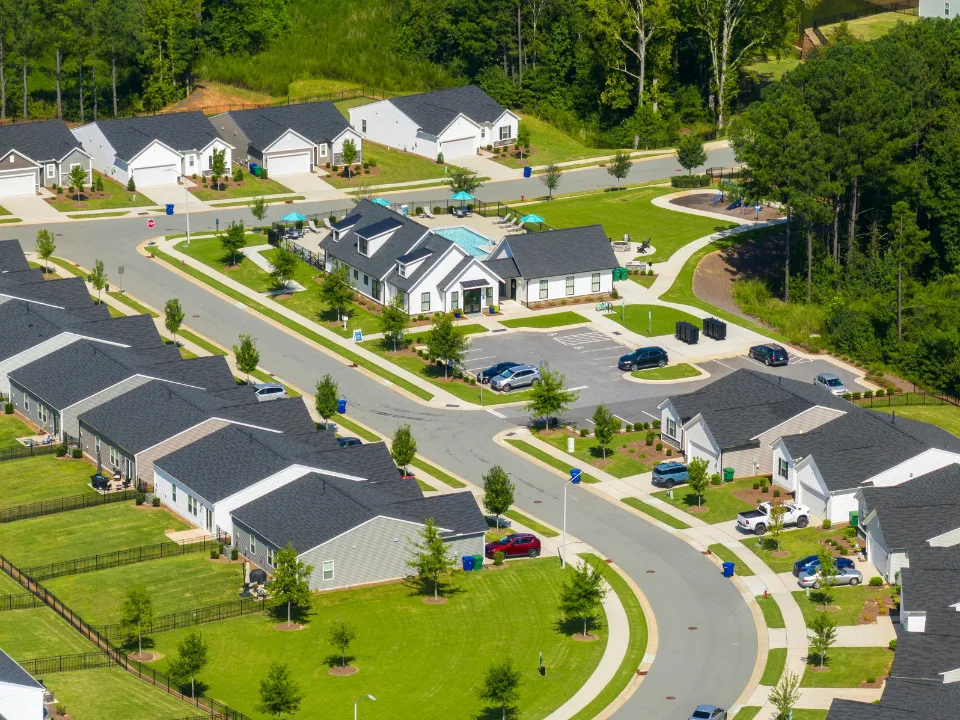Times Square Roars Back to Life Post-Pandemic
Times Square sees a notable rebound with a surge in new businesses, hotel sales, and rising retail rents as it enters the holiday season, post-pandemic.
Together with
Good morning. A quick note from CRE Daily’s Exec. Search team. We have a luxury real estate brokerage looking for a CFO. Offices in LA and NYC, but remote can work. Check out the JD here, and drop your details in this short form, if you’re interested.
Today’s issue: Times Square is experiencing a resurgence as it approaches the holiday season. The surge in the 10-year Treasury rate is squeezing cap rates. Meanwhile, Atlanta saw a CRE sales slowdown in Q3, marking a 50% dip from the 5-year average, but multifamily sales stronger than most.
Today’s issue is brought to you by Redwood.
👋 First time reading? Sign up here
Market Snapshot
|
|
||||
|
|
*Data as of 10/11/2023 market close.
BACK IN BUSINESS
Times Square Roars Back to Life After The Pandemic

Times Square businesses have been invigorated by the return of tourists. PHOTO: DANIEL SLIM/AGENCE FRANCE-PRESSE/GETTY IMAGES
Times Square is experiencing a remarkable resurgence as it heads into the holiday season, with the area witnessing a surge in new businesses, hotel sales, and increased retail rents following the pandemic downturn.
Remarkable revival: The pandemic’s devastation turned an iconic US entertainment district into a ghost town, but Times Square is now experiencing a resurgence. With 180 new business openings surpassing its 179 closures, the district is thriving, particularly in the restaurant industry, where a diverse range of eateries, from Taco Bell to the upscale Mermaid Oyster Bar, have set up shop. Sales from theatergoers and office workers are soaring, especially on weekdays.
Retail rents soar: Retail rents in Times Square increased significantly, reaching an average of $1,342 PSF in Q3, marking a 40% rise compared to last year when rents hit a pandemic low of $959 PSF. The return of tourists has boosted the hotel market in Times Square and Midtown West, with occupancy reaching 88% in September and average daily room rates up by over 10% to $417, reflecting the area’s post-pandemic recovery and growing international tourist demand.
Investor interest: Nearly 25% of the $1.9B in Manhattan hotel transactions this year have occurred in Times Square, as reported by MSCI Real Assets. The 317-room Renaissance hotel is under contract to be sold for approximately $165M to Newbond Holdings, a company co-founded by Neil Luthra and backed by Apollo Global Management, marking their second hotel acquisition in the past year. Sherwood Equities will retain ownership of the remaining property, including the Olive Garden retail space.
➥ THE TAKEAWAY
The comeback: Times Square’s recovery is ongoing, and crime in the area is below 2019 levels. Foot traffic remains below pre-pandemic levels, but there has been an increase in Broadway ticket sales and attendance compared to last year. While challenges persist, investors and developers are doubling down on tourism and entertainment to draw people back to the district.
SPONSORED BY REDWOOD
The Rise of the “Homebody” Renter
A lifestyle that first appeared to be a temporary pandemic shift now seems to be sticking: the rise of people spending more time at home for work and play.
According to Lia Nichole Smith of ApartmentRatings.com and SatisFacts Research, introverts and extroverts alike are embracing more time at home, treating their living spaces as sanctuaries and fueling a movement she calls “the rise of the homebody.” In fact, data suggests that by 2025, more than 70% of Americans will continue with the at-home habits that were adopted during the pandemic.
For multifamily companies like Redwood Living, Inc—known for its single-story neighborhoods of apartment homes whose smallest floor plan is 1,200 square feet and comes with an attached garage—this trend is paying off. With room for a dedicated work from home setup, a large kitchen and living space fit for entertaining, hobbies, and more. For Redwood investors, this comprehensive approach to site selection, apartment design, operations and service leads to strong occupancy and ongoing demand.
Redwood’s neighborhoods of apartment homes span across the Midwest market, commutable to major metro areas in nine states. Its remarkable growth isn’t slowing heading into 2024, with more equity deals coming down the pipeline soon.
Read the full article and see how investors can capitalize on this trend.
CAP RATE CRUNCH
Cap Rates Face Off Against Soaring 10-Year Treasury Yields
The surge in the 10-year Treasury rate is squeezing cap rates, making real estate investments less appealing due to high borrowing costs and potentially reducing property values.
Under pressure: The 10-year Treasury rate has reached its highest level since June 2007, with a recent increase to 4.79% after trading on October 6. Rising Treasury rates are putting pressure on cap rates and investor return expectations, as mid- and long-term borrowing rates have surged by 400 bps in 18 months, resulting in a 20–25% decrease in refinance proceeds for all asset classes. This situation may lead to lower CRE values next year as cap rates adjust and financing becomes constrained by higher debt service costs.
Investor sentiment: The 10-year Treasury rate has increased significantly, leading to higher costs for businesses, investments, and loans and negatively impacting transaction volumes. Investors find investing in CRE less attractive when the return is lower compared to the 10-year Treasury rate. However, some believe that historically, CRE investments in markets like Florida have outpaced what the Treasury note pays, suggesting that it remains a wiser long-term investment despite the current challenges.
Price compression: The increase in the 10-year Treasury rate is expected to put downward pressure on the valuations of owner-occupied CRE, with 5- or 7-year mortgages coming due in the short term. Lenders can accommodate refinancing, such as re-amortizing loans or increasing LTV percentages, but cash-out refi is unlikely in this environment. The 10-year Treasury rate is a gauge of investor confidence. Higher rates may signal turbulence ahead, potentially leading to price compression and reduced deal activity.
➥ THE TAKEAWAY
Bumpy road ahead: The Fed’s decision to stop buying bonds has led to a substantial increase in long-term bond yields and mortgage rates, which is expected to continue until it resumes purchases. Since the timing of this remains uncertain, borrowers seeking permanent refinancing are experiencing a significant rise in the cost of capital, potentially requiring more equity for qualification and impacting returns.
AROUND THE WEB
📖 Read: Hedge funds and private equity firms are increasingly dominating corporate lending as rates rise, shifting the balance of power as traditional banks reduce lending.
🎧 Listen: In this episode of CBRE’s The Weekly Take, Blackstone’s John Stecher and Sandeep Davé from CBRE discuss the transformative impact of data and technology, including AI and PropTech, on CRE.
MARKET ANALYSIS
Atlanta’s Multifamily Housing Market Exhibits Strength Amidst 50% Dip in Quarterly Sales in Q3

Atlanta witnessed a notable slowdown in CRE sales in Q3, with deals amounting to about $2.69B, marking a 50% dip from the 5-year average due to increased interest rates and tighter lending standards.
Thriving multifamily: While macro challenges, such as rising rates and stricter lending requirements, have slowed down deals in Atlanta, the city’s multifamily sector had a strong Q3, with $1.2B in sales volume, ranking 2nd only to New York. But it’s still a significant decline from the peak of $8.6B in 4Q21. Out-state investors play a substantial role in driving multifamily investment in Atlanta, with national firms accounting for nearly 90% of buyer volume in Q3.
Robust industrial: Industrial property sales in Atlanta slipped significantly in Q3 to $650M, a $350M drop from Q2. Despite this decline, Atlanta ranked 3rd nationally in industrial sales volume, following LA and California’s Inland Empire. The largest transaction was the purchase of a 1M+ SF distribution center from Clarion Partners for $72.4M, a 32% increase in value from its 2017 acquisition.
Sluggish retail sales: Atlanta’s retail sector experienced a sharp decline in trade volume, reaching its lowest point since 2Q20, with only $447M in deals, down 57% from the same period in 2022 when it peaked at $1.5B due to a portfolio sale to Blackstone (BX). The largest sale involved a 2-property portfolio of grocery store-anchored shopping centers, totaling $37.87M, with First National Realty Partners buying them from Bandera Ventures.
Declining office: Meanwhile, Atlanta’s office sector had the lowest trade volume at $361M, slightly below last quarter. The sales volume for the first three quarters of 2023 was 75% lower than in 2022. The largest trade of the quarter was the $175M debt assumption transaction of Three Ravinia, one of the tallest office buildings in Atlanta’s suburbs, with Orlando-based Estein purchasing it at a 17% discount from the previous sale in 2016.
➥ THE TAKEAWAY
Return to normal: While Atlanta’s real estate market is experiencing a slowdown, not all sectors are created equal. The downturn in Atlanta reflects a broader national slowdown due to the macro environment. While sales may be down from their 2021 peak, the market may be returning to a more normal state rather than spiraling out of control.
DAILY PICKS
-
Hotel homes: Marriott (MAR) and Hilton (HLT) are finding success in developing stand-alone branded residential properties as the demand for hotel-like homes increases.
-
New normal: Miami’s office market, which experienced a post-pandemic boom, has returned to a more stable state with smaller office leases and a decrease in new-to-market tenants.
-
Crisis in China: Country Garden, a major Chinese property developer, faces impending default on $187B in debt due to plummeting sales amid China’s worsening real estate crisis
-
New product launch: PGIM Real Estate unveiled the RealAssetX innovation lab in collaboration with global universities, using over 50 years of data to develop new tech and research sustainability, AI, and real asset advancements in the real estate sector.
-
Beyond JVs: There’s a growing trend among institutional real estate investors to broaden their connections with operating partners by utilizing hybrid investment structures, moving beyond conventional joint ventures.
-
Beachfront victory: Despite objections from preservationists and nearby property owners, the Miami Beach Historic Preservation Board approved the construction of a 15-story condo building at the Ritz-Carlton hotel.
-
REGAL addition: Wells Fargo (WF) has hired Credit Suisse veteran Michael Kamras as a managing director in real estate, gaming, lodging, and leisure.
-
Buying spree: Tech billionaire Eric Schmidt, former chairman and CEO of Google (GOOGL), has been acquiring waterfront homes on Miami Beach’s Sunset Islands, amassing a real estate portfolio totaling nearly $114M.
-
Parting ways: The head of the federal government’s real estate portfolio, Nina Albert, is leaving her position after just 2 years at the helm.
-
Contested closures: Landlords of closed Target (TGT) stores are disputing the retailer’s claim that rampant crime forced closures, suggesting other factors, like an inability to operate large-format stores in big cities, played a significant role in the decision.
-
Jump in delinquencies: According to CRED iQ, CMBS delinquencies increased to 5.19%, with 62% of new delinquencies attributed to maturity defaults or refinancing challenges, resulting in an overall distressed rate of 7.43% in September.
-
Shrinking sales: NYC’s CRE market saw a 21% drop in transactions in Q3, returning to the Q1 levels and signaling a potentially weak year-end performance, with the total for 2023 expected to be less than $10B.
-
Office outlook: Prize-winning real estate economist Stijn Van Nieuwerburgh predict the office market will take years to recover due to high office vacancies resulting from the shift in where people work.
-
Trust during turbulence: In the face of negative headlines and market uncertainty, it’s crucial for CRE firms to proactively communicate and frame their narrative, focusing on acknowledging challenges while maintaining credibility.
📈 CHART OF THE DAY
Last week, 30-year mortgage rates took a brief dip before spiking to a 23-year peak, marking the fourth record high in just eight days, with similar upward trends observed in various other loan types.
📣 HIT THE INBOX OF 65K+ CRE PROFESSIONALS
Advertise with CRE Daily to get your brand in front of the Who’s Who of commercial real estate. Subscribers are high-income decision-makers, investors, and C-suite executives. For more information, please email [email protected].
What did you think of today’s newsletter? |






















